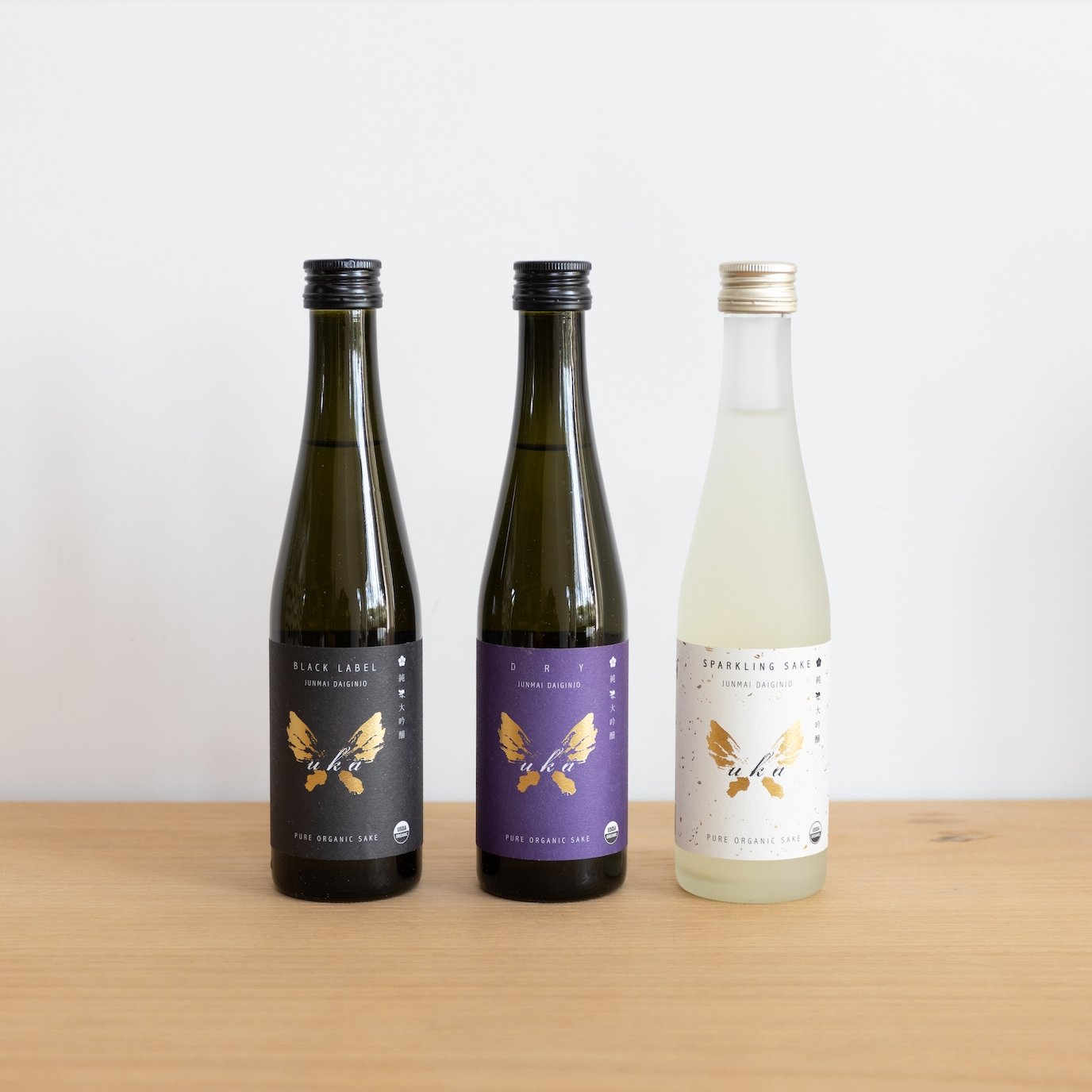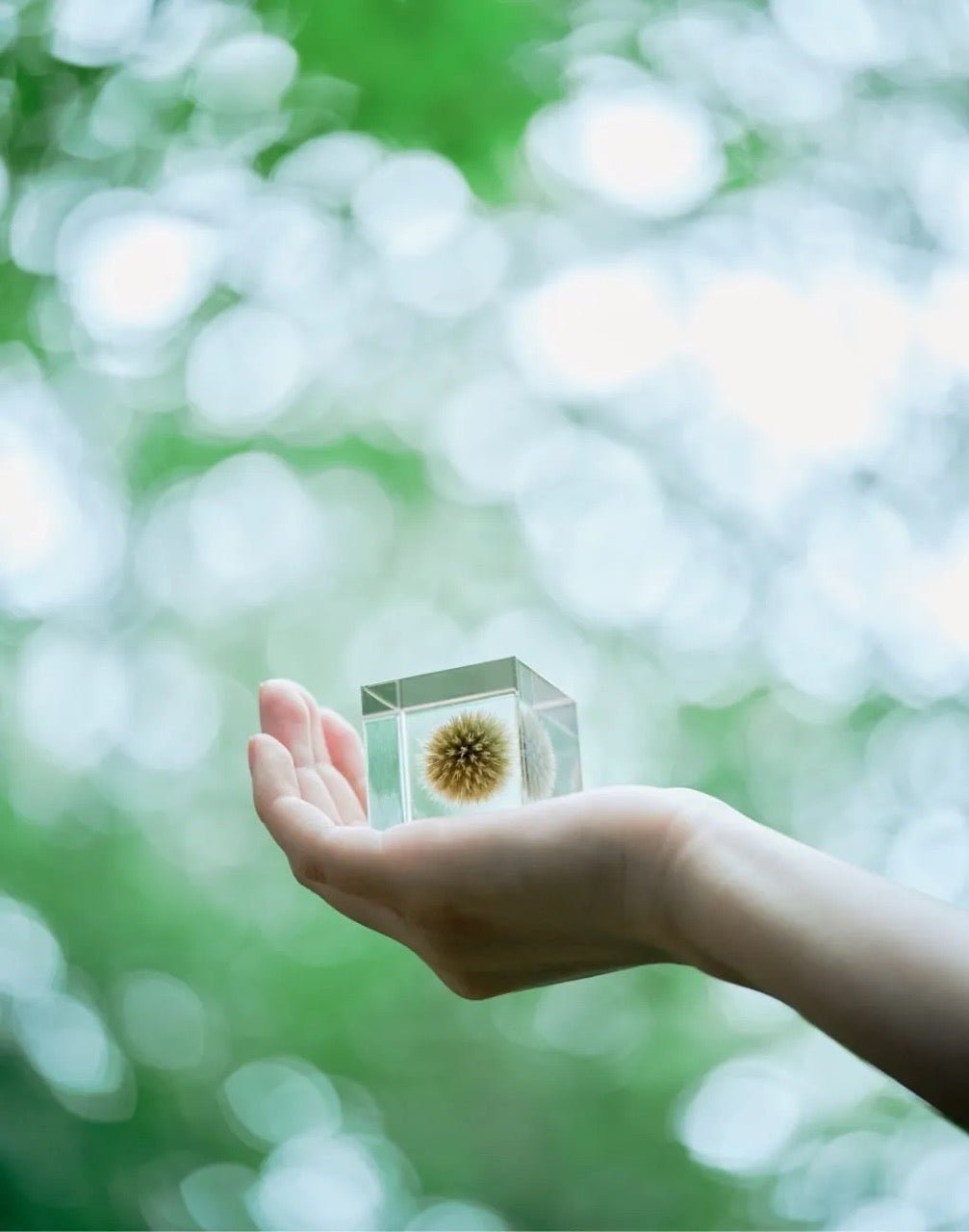



While innovation defines the first half of Uka sake, preservation defines the second chapter. The rice comes from an organic farm in California, but the 126-year-old Ninki Shuzō Brewery is the sakagura that handcrafts Uka. A traditional sake brewery by all measures, Ninki Shuzō prides itself on abstaining from modernization, sticking to traditional methods for every step in its brewing process. Their 100-year-old ceder-tree fermentation tanks are some of the largest found in Japan at 6,500-liter volume. Forgoing modern storage tanks as well, Ninki Shuzō chooses to age all their premium sake in bottles.

Ninki Shuzō understands all too well how difficult it can be to keep this kind of tradition going. Their sake storage facility–or kura–was badly damaged in the Tōhoku earthquakes of 2011, and they were forced to relocate. Instead of cutting corners after such a major setback, Ninki Shuzō chose to double down after the earthquake, turning itself into a year-round operation so they could provide fresh sake for all four seasons when it had only been available in the winter and spring.

Whether it's rebuilding after an earthquake or brewing sophisticated sake from an untraditional rice, commitment is a character trait that Ninki Shuzō and Koda Farms both share in abundance. Ninki Shuzō after all produces organic sake, and like organic farming, organic brewing is a commitment of both time and money: time to research organic methods and money to facilitate organic manufacturing and obtain certification. Even if the rice is organic (which it is) a factory full of chemicals would undercut the ethos that drives both the brewery and the rice farm–a commitment to sustainability, the environment, and health is at the core of Uka's identity.

These two halves of Uka's story–one part innovation and one part preservation–connect through their shared goals of sustainability and legacy. Uka is the Japanese word for "emergence", and like the rice that is milled and emerges as a finely polished kernel, or the butterfly that emerges from its chrysalis, Ross imagined Uka to be a symbol of the relationship that emerges from joining California and Fukushima through sake and shared dreams.

The sumie (literally ‘ink art’) style butterfly on Uka’s label perfectly captures the spirit of the whole endeavor. The lower wings of Uka’s butterfly are stylized maps of California and Fukushima–the two halves and two families uniting together in flight. “The only goal I have for Uka Sake is to become something that would make my ancestors happy, and allow me to feel I have honored the struggles and sacrifices they endured for me,” says Ross. And what has emerged from that goal is a sake rich in history and driven by intentions, something completely new for everyone to enjoy.
We welcome you to come by and pick up a bottle of Uka, available today in three bottles – from still to sparkling sake – in 300ml and 720ml bottles.
Uka Black Label Organic Junmai Daiginjo ($24, 300ml): Clear, day-bright nectar with aromas of strawberry, pineapple, and a whisper of anise. Full-bodied, balanced, and fruity with a hint of honey. A silky, luscious texture and a long finish.

MILLING: 40% (60% is milled away)
RICE: Koda Farms' Heirloom Organic Kokuho Rose
ALCOHOL: 16%
SERVE: Chilled
SMV: -1
Uka Dry Organic Junmai Daiginjo ($46, 720ml): Pleasantly intense aromas of green apple, pear, and hints of anise. Smooth, dry, and light entry with honeysuckle, mineral notes, and a long finish — a delicious sake that beckons food (fish, sushi, etc.)

MILLING: 40% (60% is milled away)
RICE: Koda Farms' Heirloom Organic Kokuho Rose
ALCOHOL: 16%
SERVE: Chilled
SMV: +7
Uka Sparkling Sake Organic Junmai Daiginjo ($24, 300ml): Dreamlike mist in a glass graced with aromas of white flower, pear, and anise. Silky texture with a citrus fruitiness heightened by a delicate effervescence.

MILLING: 40% (60% is milled away)
RICE: Koda Farms' Heirloom Organic Kokuho Rose
ALCOHOL: 7%
SERVE: Chilled
SMV: +28



